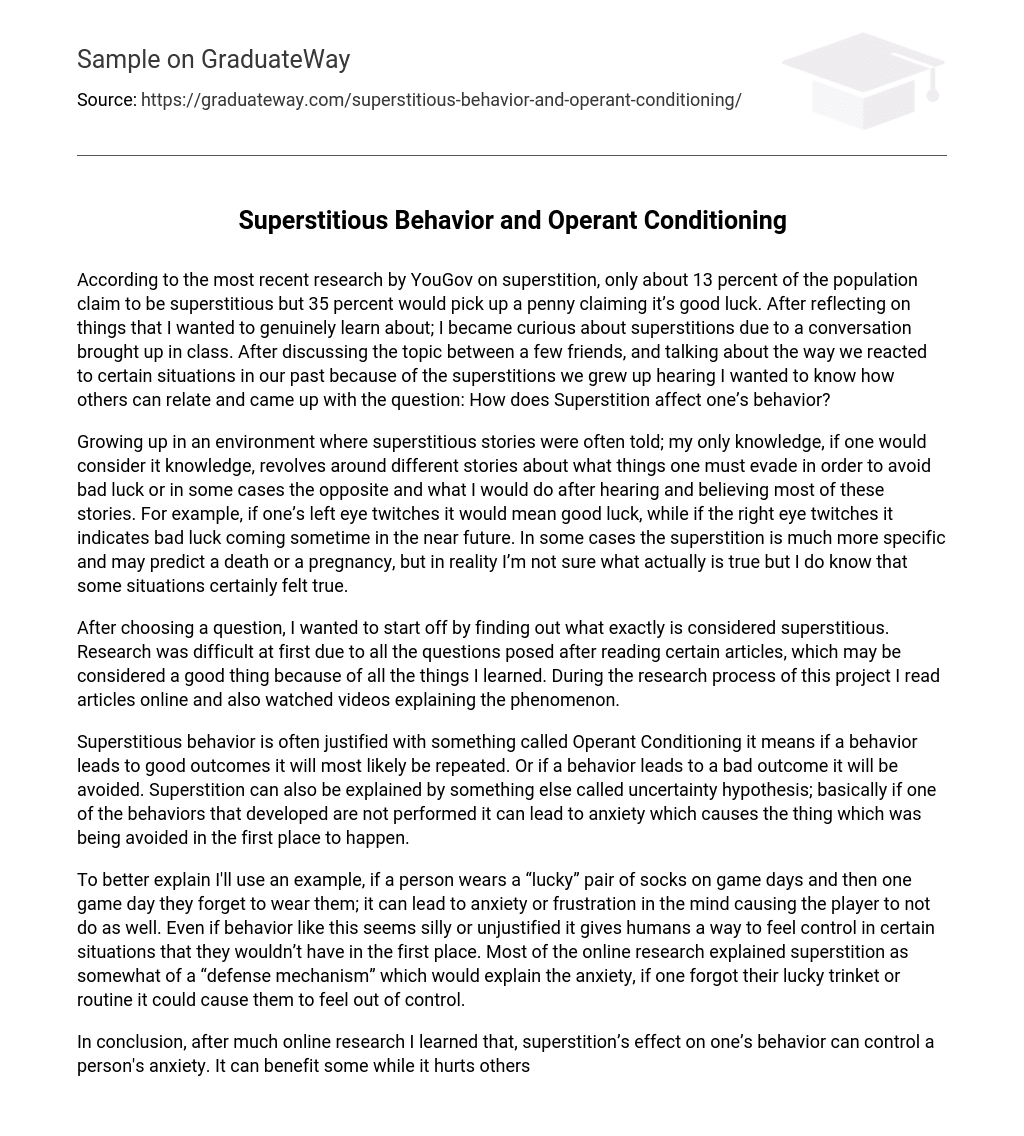According to the most recent research by YouGov on superstition, only about 13 percent of the population claim to be superstitious but 35 percent would pick up a penny claiming it’s good luck. After reflecting on things that I wanted to genuinely learn about; I became curious about superstitions due to a conversation brought up in class. After discussing the topic between a few friends, and talking about the way we reacted to certain situations in our past because of the superstitions we grew up hearing I wanted to know how others can relate and came up with the question: How does Superstition affect one’s behavior?
Growing up in an environment where superstitious stories were often told; my only knowledge, if one would consider it knowledge, revolves around different stories about what things one must evade in order to avoid bad luck or in some cases the opposite and what I would do after hearing and believing most of these stories. For example, if one’s left eye twitches it would mean good luck, while if the right eye twitches it indicates bad luck coming sometime in the near future. In some cases the superstition is much more specific and may predict a death or a pregnancy, but in reality I’m not sure what actually is true but I do know that some situations certainly felt true.
After choosing a question, I wanted to start off by finding out what exactly is considered superstitious. Research was difficult at first due to all the questions posed after reading certain articles, which may be considered a good thing because of all the things I learned. During the research process of this project I read articles online and also watched videos explaining the phenomenon.
Superstitious behavior is often justified with something called Operant Conditioning it means if a behavior leads to good outcomes it will most likely be repeated. Or if a behavior leads to a bad outcome it will be avoided. Superstition can also be explained by something else called uncertainty hypothesis; basically if one of the behaviors that developed are not performed it can lead to anxiety which causes the thing which was being avoided in the first place to happen.
To better explain I’ll use an example, if a person wears a “lucky” pair of socks on game days and then one game day they forget to wear them; it can lead to anxiety or frustration in the mind causing the player to not do as well. Even if behavior like this seems silly or unjustified it gives humans a way to feel control in certain situations that they wouldn’t have in the first place. Most of the online research explained superstition as somewhat of a “defense mechanism” which would explain the anxiety, if one forgot their lucky trinket or routine it could cause them to feel out of control.
In conclusion, after much online research I learned that, superstition’s effect on one’s behavior can control a person’s anxiety. It can benefit some while it hurts others. If their mindset is to wear their lucky trinket to get a good grade it can lead to instances where forgetting said trinket could lead to failing because of lack of faith in the ability to pass that test. So superstition can affect one’s behavior in both positive and negative ways. But it is a phenomenon that will probably always exist because of human’s need for control.





